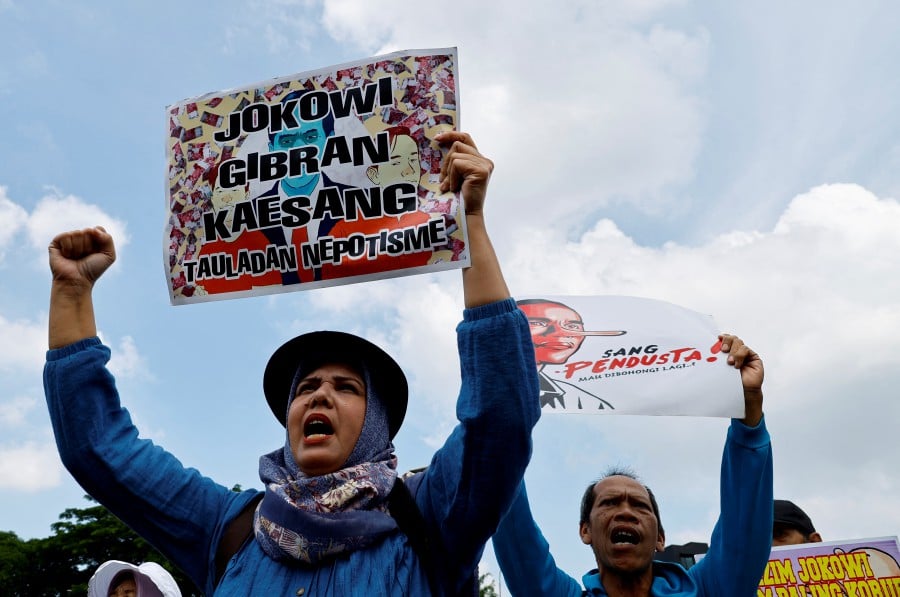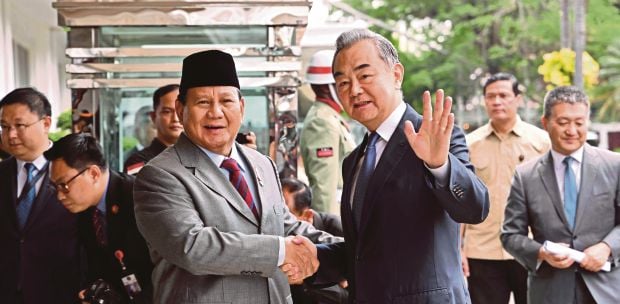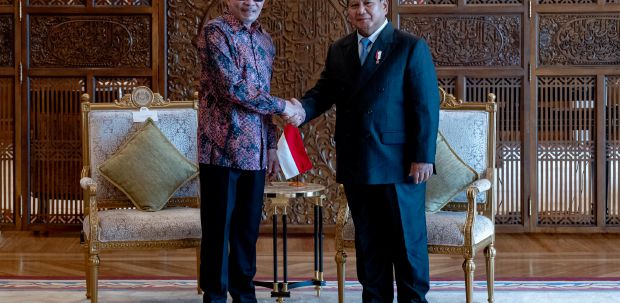JAKARTA: The election of a new leadership in Indonesia enters a crucial phase tomorrow (Feb 14), with approximately 204.8 million eligible voters expected to cast their ballots at polling stations for the 2024 General Election.
A total of 820,161 polling stations across 38 provinces will open their doors to voters for six hours, starting from 7 in the morning until 1 in the afternoon.
'Pesta Demokrasi' or democracy party in the world's third-largest democracy will determine the successor to President Joko Widodo, popularly known as Jokowi, who concluded his second and final term in October.
Candidates for president and vice president for the 2024-2028 term will be elected, along with several candidates for the People's Consultative Assembly (MPR), the House of Representatives (DPR), and the Regional Representative Council (DPD).
According to the Indonesian General Election Commission (KPU), voters will each receive five ballot papers at the polling stations.
Even though he admitted there were problems in terms of logistics, KPU Chairman Hasyim Asy'ari assured that all requirements would be delivered to even the most remote areas according to schedule.
Jokowi will cast his vote at the State Administration Building, 10 Veteran Street, Central Jakarta, based on an invitation from the Gambir Polling Station Organising Group.
The focus is on the Presidential Election, which involves former Governor of Jakarta Anies Baswedan who is paired with the General Chair of the National Awakening Party, Muhaimin Iskandar, as a candidate for vice president. Defence Minister Prabowo Subianto is also competing for the third time after losing in 2014 and 2019 to Jokowi, and is now joining Jokowi's eldest son, Gibran Rakabuming Raka, as his running mate for vice president.
Former Central Java Governor Ganjar Pranowo, meanwhile, is partnering with Mahfud MD, former Coordinating Minister for Political, Legal, and Security Affairs.
If no candidate receives more than 50 per cent in the first round, the second round is scheduled for June, with only the top two candidates with the most votes proceeding.
In this election, young voters, including Millennials and Gen Z, represent 54 per cent of eligible voters, starting from the age of 17.
The highest and most influential number of voters are in Java with 115.4 million voters and 454,444 polling stations.
West Java has the highest number of voters, with 35.7 million, followed by East Java with 31.4 million, Central Java with 28.3 million, Jakarta with 8.25 million, Banten with 8.8 million, and Yogyakarta with 2.9 million.
Nilam, 21, a salesperson at a supermarket in South Jakarta, wants a presidential candidate who understands the aspirations of the younger generation, receptive to the visions and missions highlighted on social media.
Nanang, 45, a transport service driver, will leave the capital city at 5pm this afternoon to fulfil his duty at the Cianjur polling station in West Java.
"Hopefully, the future will be better. Children will have better access to education, blessed jobs, and many business opportunities," he said.
Rini, 52, an executive clerk in Central Jakarta, said, "This election feels ordinary to me because I have already made my decision, unlike in 2019 when I was always thinking about who to vote for and eventually followed my instincts." — Bernama
Keywords: Election, Presidential Election, Indonesia, Jokowi, voters, Polling Station





